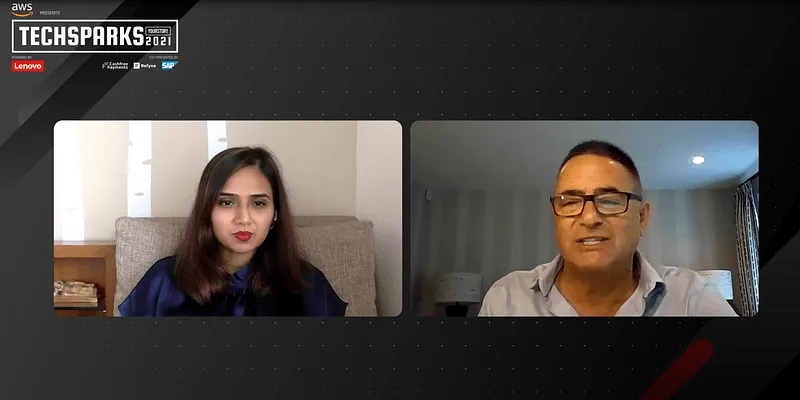Redis Co-founder and CEO Ofer Bengal on how the pandemic accelerated digital adoption and necessitated the move to cloud
At TechSparks 2021, YourStory’s flagship startup-tech summit, Ofer Bengal, Co-founder and CEO of Redis, shares how digital adoption has become crucial for companies to grow.
Although many industries dealt with severe setbacks as a result of the restrictions imposed to curtail the spread of COVID-19, the pandemic has proven to be a catalyst of growth for the cloud database industry. At TechSparks 2021, YourStory's flagship startup-tech event, Ofer Bengal, Co-founder and CEO, Redis shared insights on how the company intends on leveraging the momentum.
According to a Valuates report, the worldwide cloud database market is projected to reach $68.5 billion by 2026 and real-time data platform is among the top players in the arena, hitting the $2 billion valuation mark earlier this year.
“Redis is all about the instant response of digital apps and [this] is mandatory today because no one has the patience to wait,” says Ofer.
He underlines that the database response time can kill the user experience, and this is the bottleneck that the company resolves with its real-time data management capabilities.
How COVID-19 boosted cloud database companies
“The pandemic accelerated digital transformation and the move to the cloud. Any company that is in the business of enabling technology probably did very well during this time,” Ofer adds. He believes that companies recognised the need to have an online presence, and those who already did, felt the urgency to modernise it.
Redis saw healthy growth during the pandemic, and Ofer says that the momentum is still on, predicting that this trajectory is likely to continue for a long time. Other companies in the space such as MongoDB and Elastic reflect similar growth trends.
“According to IDC, the database market will grow around 14 percent CAGR YoY in the next five years to more than $100 billion,” he remarks.

Looking forward
Currently, the company has more than 8,000 enterprise customers globally. At the moment, Redis is primarily being used in North America, Europe, and India. “There are very big markets in Asia, like China and Japan, where Redis is popular but we did not do anything yet,” Ofer shares.
He reiterates that they intend to expand in a planned and sustainable manner, and in the next few years, they are looking to start operating in some of these territories.
According to Ofer, India is one of their fastest-growing markets, which is why they have chosen to make significant investments here. “We’re in the process of growing our Indian team, which is based in Bengaluru, by 100 percent,” he reveals. They plan on growing annual revenues by over 50 percent in this market alone. This is driven primarily by two factors – one, the inclination that developers have for Redis, and the other being several companies in India moving to the cloud.
Redis has successfully acquired premium customers in India, including Freshworks, SonyLIV, and RazorPay, and they are optimistic about the opportunities here.
Through the looking glass
Providing his perspective on the future for the industry at large, Ofer believes that Machine Learning and Artificial Intelligence will gain significance for data, databases, and data platforms.
“The name of the game is to make Redis the primary database for real-time applications and to replace the legacy architecture of slow database and caching layer to support it,” Ofer concludes. Redis has set the wheels in motion to ensure that the company focuses on both product development, and sales and marketing, working towards faster growth and capturing a bigger market share.
To log in to our virtual events platform and experience TechSparks 2021 with thousands of other startup-tech enthusiasts from around the world, join here. Don't forget to tag #TechSparks2021 when you share your experience, learnings and favourite moments from TechSparks 2021.
For a line-up of all the action-packed sessions at YourStory's flagship startup-tech conference, check out TechSparks 2021 website.

Edited by Kanishk Singh








